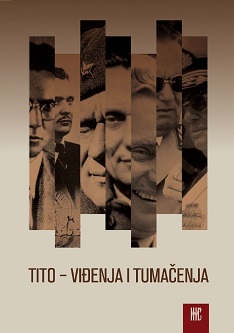Josip Broz Tito i patrijarsi Srpske pravoslavne crkve (Gavrilo, Vikentije i German)
Josip Broz Tito and the Patriarchs of the Serbian Orthodox Church (Gavrilo, Vikentije, and German)
Author(s): Radmila Radić
Subject(s): Governance, Political history, Politics and religion, WW II and following years (1940 - 1949), Eastern Orthodoxy, History of Religion
Published by: Institut za noviju istoriju Srbije
Keywords: Josip Broz Tito; Patriarch Gavrilo; Patriarch Vikentije; Patriarch German; Serbian Orthodox Church;
Summary/Abstract: Over 35 years spent as head of the Yugoslav state, Josip Broz Tito was in contact with three patriarchs of the Serbian Orthodox Church, Gavrilo (Dožić), Vikentije (Prodanov) and German (Doric). Josip Broz Tito was not directly addressing issues related to the Serbian Orthodox Church since they were in charge of the federal and republican commission for religious relations and management of national security/state security service. Never the less, no important decisions regarding the general policy towards religious communities could not be made without agreement among the top of the Party and the State and without the knowledge of Josip Broz Tito. Contacts of Josip Broz Tito with the patriarchs were mostly of protocol nature, except in cases of special interest for the relations of church and state (e. g. the question of the return of the Patriarch Gavrilo, questions about the international activities of the Serbian Orthodox Church, addressing issues of the Macedonian Orthodox Church, etc.). Relations between the state and the Serbian Orthodox Church after 1945, and accordingly relations of Josip Broz Tito's towards Church and some personalities who were at the head of the church during certain periods, should be primarily viewed in the context of the particular interests of church and state, broad relations and developments in Yugoslavia and on the international scene. State authorities carefully controlled activities of the Patriarch and the Bishops of the SOC, but the pressure varied in accordance with current needs and circumstances. It is characteristic that the same person at the head of the SPC was evaluated differently by the authorities, depending on his readiness for cooperation. Both Patriarch Gavrilo and Patriarch German were seen at one point as patriots and in other as traitors and collaborators with occupiers. Also, the behavior of single patriarch should be considered and evaluated within the limits of the possible and achievable in a given time, i. e. at various stages through which the relations of church and state passed.
Book: Tito - Viđenja i tumačenja
- Page Range: 117-134
- Page Count: 18
- Publication Year: 2011
- Language: Serbian
- Content File-PDF

